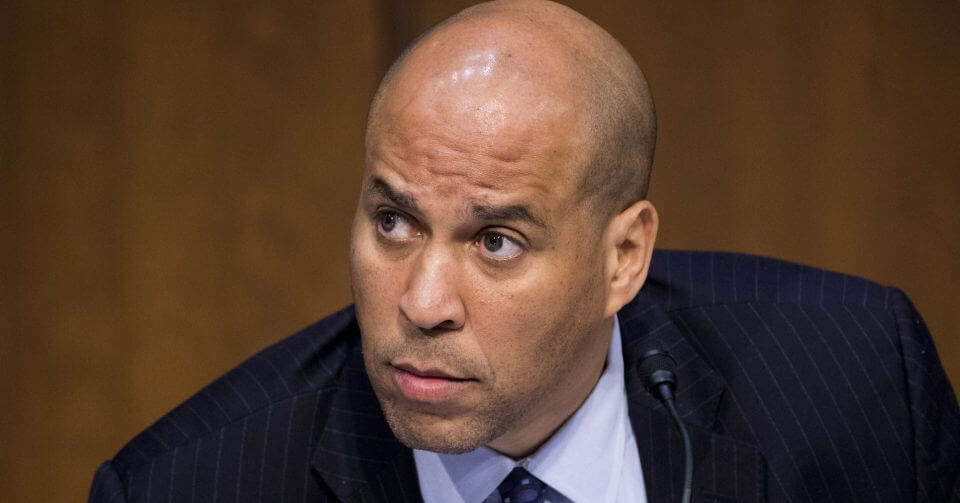
The cost of a Senate seat, after all, averaged $10,476,451 during the 2012 elections. With that steep of cost, can we expect anything other than politicians sometimes having to speak out of both sides of their mouths?
In February 2018, Sen. Cory Booker (D-Nj.) announced that he would no longer accept PAC (political action committee) money for campaign funding if the PAC has ties to a for-profit organization. He is another face in a line of Senate Democrats, including Sen. Kirsten Gillibrand (D-Ny.) and Sen. Elizabeth Warren (D-Ma.) making this same pledge. Mr. Booker’s decision came in response to extensive criticism for certain healthcare-related votes that were perceived as doing the bidding of pharmaceutical corporations, who had donated to his campaign, at the expense of patients.
Booker was one of 12 Democrats who voted against a measure that would have allowed Americans to purchase imported drugs from Canada at a cheaper cost. Democratic activists questioned Mr. Booker’s liberal credentials in the aftermath of his vote, and the New Jersey Senator was left to field incredulous and critical social media responses, including from liberal group Our Revolution and from comedy writer Kerri Doherty.
“Despite an effort to spin his decision as a moral awakening, his about-face was almost certainly due to bad press alone.”
Some fact checkers have argued that the claims against Mr. Booker’s vote were misleading, given the fact that all 13 Senate Democrats, including Mr. Booker, also voted for a separate amendment aimed at facilitating lower drug prices, which did not pass. Either way, Mr. Booker broke against the supposed Democratic norm and joined Republican colleagues to kill the bill and, thus, temporarily halt the importation of the cheaper Canadian drugs.
But the damage was done, and the backlash from constituents was strong enough to cause him to announce a “pause” on pharmaceutical PAC fundraising. Despite an effort to spin his decision as a moral awakening, his about-face was almost certainly due to bad press alone; Mr. Booker, even himself stated in June, 2017 that accepting PAC money, “…arouses so much criticism.”
Without contributions from large political action committees, where does that leave Senator Booker when it comes to fundraising? Mr. Booker seems to be trying to take a page out of Sen. Bernie Sanders’ (I-Vt.) book. Small contributions, according to Mr. Booker, are the source of many of his donations: “And I’m proud that the majority of my contributions come from individual contributors, often small-dollar contributors.”
But unless you’re Bernie Sanders, small donations of less than $30 aren’t going to cut it, particularly in the event of a possible future national campaign. Mr. Sanders was, of course, beholden to few groups other than the people he sought to represent during his presidential campaign. This was a talking point also of Donald Trump’s during the Republican primaries. Mr. Booker, in declining to accept PAC money, seems to be trying for something similar, hopping onto a popular campaign message.
But those on the left, who had been attacking Mr. Booker for his deep ties with well-financed organizations, seem to be ignoring the realities of politics today. It’s a money-dominated environment, so playing within that climate is not the same as having created it. Many of the left’s beloved politicians have accepted significant amounts of money from PACs in order to reach office.
“But Mr. Booker, like many other lawmakers, is just a symptom of a money-laced world in Washington where the expectation is consistently to win an election and re-election.”
During his first presidential campaign, Barack Obama received nearly $1 million dollars from a Goldman Sachs PAC and from individual contributors who listed the financial organization as their employer. Senate Minority Leader Chuck Schumer (D-Ny.) has taken his fair share of PAC money (including $3,194,382 from the “Securities & Investment” industry between 2013-2018) with little complaint from those on the left—while also, ironically enough, promising to fight the Trump administration’s alleged connection to Wall Street and bemoaning President Trump’s Cabinet as being, “…stacked with billionaires, corporate executives, titans of Wall Street.”
But Mr. Booker, like many other lawmakers, is just a symptom of a money-laced world in Washington where the expectation is consistently to win an election and re-election. The cost of a Senate seat, after all, averaged over $10 million—$10,476,451 to be exact—during the 2012 elections. With that steep of cost, can we expect anything other than politicians having to speak sometimes out of both sides of their mouths—one side to appease their donors and the other to pay lip service to the people they nominally represent? Perhaps that’s the reason Pew studies have found that the perception of “dark money” controlling politics is a root cause of Americans’ all-time high distrust of elected officials.
Are the actions of Cory Booker and other lawmakers hypocritical? Yes, of course. But unless you’re Bernie Sanders and can single-handedly start “a movement,” there is little alternative to accepting money from PACs and corporations, especially if, by chance, you have any thoughts of a bid for the White House.
Ronald McIntire is a freelance writer based in Pennsylvania.










